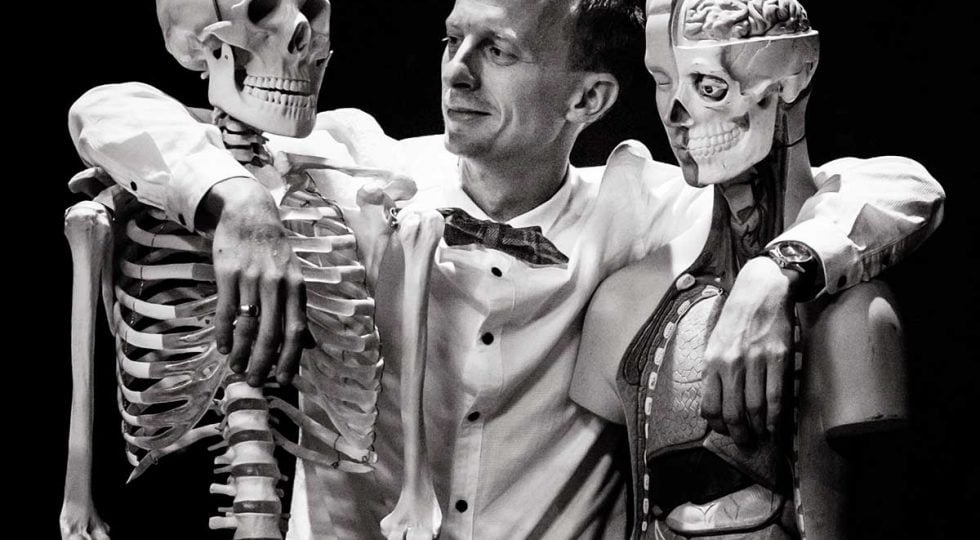Paulius Rakštikas
Psychologist
Mindful.lt
Paul, what is mindfulness to you?
To me, awareness is clear awareness. About what processes are happening in me and around me.
At this point, it is easy to fall into the linguistic trap of asking yourself, could the perception be unclear? Indeed it can. We are all more or less aware of what we are doing today, what we are striving for, what we want, how my body feels in the process and so on...
But the bottom line is that if we just took a little more time than usual to examine everything we do today and how we feel, we would soon discover that this is hardly the final answer. In other words, the pursuit of clarity in everyday life can be renewed and deepened, which inevitably changes what we do, how we do it, and how we feel.
How did you find it important enough to not only practice, but to share it with others?
I share with others what I believe and see the benefits and meaning. This is the job of a psychologist and lecturer - to offer people effective tools and teach them how to use them. Mindfulness practices are not something new and trendy, as it may seem to someone who hears it for the first time.
I personally have been naturally cozying up to it for over a decade, and the further I go, the more clearly I see the enormous potential of these practices. Interestingly, science discovered this not so long ago (about half a century), but mankind has been using these practices for thousands of years. Perhaps, with the support of science, the popularity of practitioners is increasing.
What do you do to stay focused on social media and YouTube?
The answer is quite simple - the hygiene of the agenda, which begins with the hygiene of the mind.
It's not easy, because social networks are one of the communication channels of my work, so I don't limit myself from them as much as I would like. Strict self-discipline really helps.
Just a simple tip for everyone - turn off absolutely all signals from mobile apps: when they text you, when you receive an email a letter, when someone marks you somewhere, etc. Nothing will fall apart if you don't react to it immediately, but when you sit down to it at the appropriate time (e.g. by allocating 1 hour each in the morning and in the evening). I have been practicing this for a long time and it has greatly reduced my attention wandering.
We all don't have time these days, when we really do have it at our disposal - we just waste it and proudly call it busyness.

Have your working methods changed since you discovered mindfulness practices?
Yes. I am an active person and I notice how I am used to using this activity to cover up what I don't like about myself.
I was and in some sense I am restless, therefore, personally, it is an important discovery for me that even for someone like me, learning to stop, to take things slow, can be far more beneficial than doing more. I'm still learning it. How stopping wins before running I discover again and again. I share this with the thought of someone reading who is like me and thinks mindfulness practices are for some melancholic introvert. Quite the opposite.
These insights also help me when I work with people, because I know that change requires personal commitment and work. The Internet encourages us to use it even more - even self-development is seen by many as an easy 1-2-3 type packed into a 3-minute YouTube video. All magically fast transformations are, in my eyes, a fog, which further distances a person from the essential changes sought.
How can you help people who are distracted without encouraging them to join your training?
When you eat, eat. When you communicate, communicate. We mix more and more activities into a common mixture. And what does the white mix taste like? What does the pea in it taste like? What does a cooked carrot taste like? Basically, in that environment, all the ingredients taste like mayonnaise.
It's the same in life - due to pace, urgency, maximalist ideas that lead nowhere, we think that we are doing so much, but we only feel the taste of mayonnaise.
While working, we think about the next future job, and after starting it, about what we will do after that. Let's try for a certain period of time to do any of our usual activities twice as slowly as usual, and try to stay with the discomfort that comes from the desire to rush. You will be surprised how uncomfortable and unnatural it will be. And indeed, it is completely natural to look twice as long into loving eyes, twice as long to feel the taste of water, twice as long to notice a falling leaf or snowflake. Then you wonder where that discomfort comes from slowing down everyday life?
A brief moment of pausing where it has not been before can be the beginning of feeling where awareness lives. The only problem is that today it is extremely difficult for a person to follow the structure and not deviate even from the goal that is important to him. That's why the groups I lead are not suitable for everyone, because not everyone can commit to spending at least an hour every day for two months in a row. While inviting those who are interested to discover the benefits of this topic on their own, I will mention that I have written a book for this purpose. It's currently going through the publishing editor's eye and I hope to share it with everyone in January. After all, we'll leave the changes for January again, shall we? 🙂
Paulius Rakštikas
http://mindful.lt